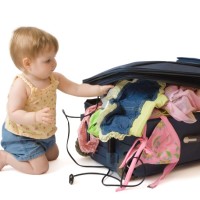Written by Julie Higginbotham, Senior Case Coordinator, Mecklenburg County CDSA
I’ve been thinking a lot lately about how much respect I have for the people surrounding my work, both directly and indirectly. I get to hear about people’s experiences locally, from around the state, and nationally – I even got a call from an out-of-state early interventionist who was looking for some more information about how we’re doing what we’re doing since she follows our blog. (Time for a shameless plug, go to the Blog page and sign up to get automatic emails whenever blogs post!!!) As someone with a lot of years under my belt in the field, both specifically in early intervention and with individuals spanning all ages/abilities, I know that there’s a lot of “stuff” that impacts how I support children and families. I will often talk to other colleagues about what makes them tick when it comes to their work, and it is fascinating to me to hear their stories and get to know more about the context that they bring to the table. It made me wonder, what are the things that make up the early interventionist that you have become or are becoming? Some thoughts I had were…
- Years of experience with different populations
- Education
- Whether or not you are a parent
- Whether or not you are married/in a relationship
- The state/area in which you practice
- How you grew up
- Your specific discipline
- How long you have been out of school
- Your own culture
- Your own traditions
- Training you have had/want/feel you need
- Anything else that comes to mind!
I have to credit our director, Joey, for my line of thought here. One of the first things she taught me when I started here in Mecklenburg County is that we all have “stuff” that comes along with us when we work, but we have to find a way to push that back when necessary. She has a great way of helping me think through my approach in a variety of ways, whether it’s related to my work with families, as a clinical supervisor, or in other roles I have here. We all have such different perspectives on our work, and some parts may incorporate nicely, but other things may need to more intentionally stay in the background. I think it’s hard sometimes to realize when the moment is staring us in the face to be deliberate in leaving our “stuff” out of the picture, and it can come up in so many different ways.
I often have families ask me what I think they should do around a variety of topics, like cosleeping (or not), using a pacifier (or not), using time out (or not)……you get the picture. I’ll sometimes joke and say, “I know that one of the things that frustrates you about our relationship is that I’ll never give you a direct answer, so tell me what you think you should do!” They typically laugh and agree, then start telling me how they’re rationalizing the decision they’ve pretty much already made anyway because they often know what they’re instincts are already telling them. It’s not my place to give advice based on my own personal experiences and opinions because they’re not me and that’s not my kid. This isn’t to say that we can’t share information with families – we can, and we always want to start with asking those reflective questions we’ve been talking about so we know what the family has tried, what they think might work, etc. But when we share information, we have to make sure that we’re sharing based on facts and what we know about the family, not based on our opinions and “stuff” that we have stored in our minds as well. I think there’s a moment when we can feel it – we’re asked a question or we make an observation, and there it is. We can see exactly what we did with our own kids, or we see just what will be the fix the family needs in their situation…..but do we let it come tumbling out? How do you know the difference between professional information vs. opinions based on your “stuff?” If it does start to tumble out, what do you do about it?






This is where reflective supervision comes in. It’s not a matter of whether or not our “stuff” will get in the way – it inevitably will. And then there are the things about ourselves that we are not even aware that we are bringing in. EVERYONE (caps intended) working in early intervention, front line staff and supervisors alike, needs access to reflective supervision. It is the platform that insures the focus remains on the families’ agendas and not our own. EI systems can acquire new skills and techniques but it is the ability to be helped in reflecting on one’s work that will put the intervention in the right context.
Thanks for this great blog.
Thanks John – I agree completely, and it’s one of the things I love most about working here in Mecklenburg County! Stay tuned, I’ve got another one in the works specific to reflective supervision from an amazing recent training….. 🙂